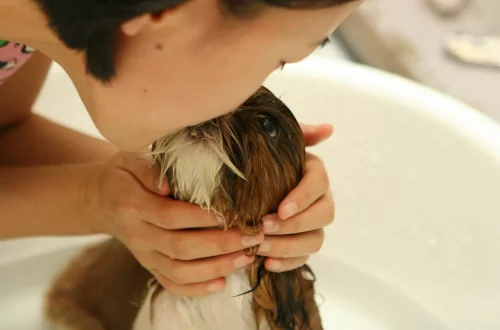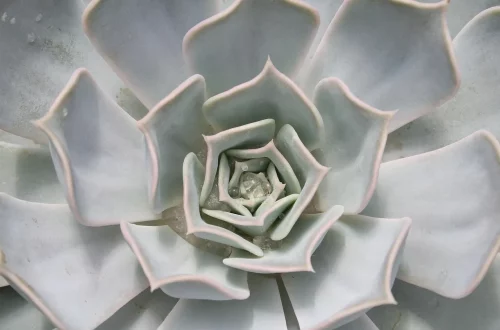
Asian Water Dragons for Sale: Your Guide to These Unique Pets
Asian Water Dragons have gained popularity as exotic pets among reptile enthusiasts and casual pet owners alike. Known for their striking appearance and unique behaviors, these captivating lizards can be an exciting addition to your home. Native to the lush forests and wetlands of Southeast Asia, they thrive in humid environments and require specific care to keep them healthy and happy.
As you embark on the journey of considering an Asian Water Dragon as your new pet, it’s essential to understand their needs, habitat requirements, and social behaviors. Unlike traditional pets such as dogs and cats, these reptiles have specific demands that must be met to ensure a long and fulfilling life. The allure of owning an Asian Water Dragon goes beyond their stunning looks; they offer a fascinating glimpse into the world of reptiles, with their curious nature and interactive behaviors.
If you’re ready to explore the enchanting world of Asian Water Dragons and consider bringing one into your life, this guide will provide valuable insights into their care and maintenance, helping you make an informed decision.
Understanding Asian Water Dragon Care
Caring for an Asian Water Dragon requires a commitment to understanding their specific needs. These reptiles have particular requirements concerning their habitat, diet, and overall environment. First and foremost, the enclosure should be spacious and well-structured, as these lizards can grow up to three feet in length. A minimum terrarium size of 75 gallons is recommended for a single dragon. The enclosure should mimic their natural habitat, including branches for climbing, hiding spots, and a water source for soaking.
Temperature and humidity are crucial factors in maintaining a healthy environment. Asian Water Dragons thrive in temperatures ranging from 80°F to 90°F during the day, with a basking area that reaches up to 100°F. At night, the temperature can drop to around 70°F. To maintain humidity levels, misting the enclosure regularly and providing a water dish large enough for soaking is vital. The humidity should be kept between 50% and 70%, as these lizards are accustomed to tropical climates.
Diet plays a significant role in the health of your Asian Water Dragon. They are omnivorous, meaning they require a varied diet consisting of insects, vegetables, and fruits. Crickets, mealworms, and roaches are excellent protein sources, while leafy greens and fruits like mango and papaya provide essential vitamins and minerals. It’s essential to dust their food with calcium and vitamin supplements to promote healthy growth and prevent metabolic bone disease.
Regular health check-ups and monitoring for signs of illness are crucial. Look for changes in appetite, shedding patterns, or unusual behaviors that may indicate health issues. With proper care, Asian Water Dragons can live for up to 15 years or more, making them a long-term commitment for any pet owner.
Creating an Ideal Habitat for Your Dragon
An ideal habitat for your Asian Water Dragon goes beyond just size and temperature; it also includes various elements that cater to their natural instincts. Since these lizards are arboreal, they need vertical space to climb and explore. Incorporating branches, logs, and vines will encourage natural behaviors, allowing them to feel secure and stimulated.
Substrate choice is another important factor in their habitat. Avoid using sand or loose substrates, as these can lead to impaction if ingested. Instead, opt for reptile carpet, coconut fiber, or paper towels, which are easier to clean and maintain.
Water is essential for both drinking and soaking. A shallow water dish should be available at all times, and it’s wise to include a larger container for soaking as Asian Water Dragons enjoy immersing themselves. This not only helps with hydration but also aids in shedding their skin.
Lighting is another critical component of their habitat. Providing UVB lighting is essential for synthesizing vitamin D3, which promotes calcium absorption. Without adequate UVB exposure, your dragon may suffer from metabolic bone disease and other health issues. Ensure that the lighting is on for about 10-12 hours a day to mimic natural sunlight.
Regular maintenance of the habitat is crucial. Spot cleaning should be done daily to remove waste, and a full clean should occur weekly to maintain hygiene. This practice not only keeps the environment healthy but also helps in monitoring your dragon’s health through observation of their waste and behavior.
Socialization and Interaction with Asian Water Dragons
Asian Water Dragons can be surprisingly social creatures, often developing a rapport with their owners. Understanding their social behavior and how to interact with them is essential for building a trusting relationship. While they may not seek out interaction as dogs or cats do, they can become accustomed to handling and may even enjoy the companionship.
It’s essential to approach your dragon calmly and handle them gently to prevent stress. Begin by allowing them to get used to your presence, spending time near their enclosure before attempting to interact. Once they seem comfortable, you can start by gently lifting them, supporting their body to make them feel secure.
Keep in mind that every dragon has a unique personality. Some may be more curious and adventurous, while others might be more reserved. Pay attention to their body language; if they seem agitated or try to escape, it’s best to give them space.
In terms of socialization, it’s generally not advisable to house multiple males together, as they can become territorial and aggressive. However, females can often coexist peacefully. If you’re considering breeding, ensure that you have a suitable setup and understand the breeding process, as it requires additional care and responsibility.
Regular interaction and handling can help your Asian Water Dragon become more comfortable and less skittish. This not only enhances your bond but also provides mental stimulation for your pet. With time and patience, you may find that your dragon responds to you and recognizes you as part of their environment.
Choosing the Right Asian Water Dragon for Your Home
When considering bringing an Asian Water Dragon into your home, choosing a healthy specimen is crucial. Start by researching reputable breeders or pet stores known for their ethical practices. Look for dragons that are active, alert, and showing no signs of illness, such as lethargy or abnormal shedding.
Before making a purchase, ask about the dragon’s age, diet, and any health issues. A responsible seller should provide you with information about the dragon’s care and background. It’s also beneficial to see the living conditions where the dragon has been raised, as this can give you insight into its health and well-being.
If you’re considering adopting an adult dragon, keep in mind that they may require more adjustment time than younger lizards. Adult dragons may come with established behaviors and habits that can affect their adaptability in a new environment.
Once you have chosen your dragon, prepare your home to meet its needs. Ensure that the habitat is set up and ready before bringing your new pet home. This proactive approach will help reduce stress for both you and your new companion.
As you embark on this journey, remember that owning an Asian Water Dragon is a long-term commitment that requires time, effort, and resources. With the right preparation and dedication, these unique pets can bring joy and fascination to your life for many years to come.
In conclusion, Asian Water Dragons are intriguing pets that offer a unique experience for reptile enthusiasts. By understanding their care requirements, creating a suitable habitat, and fostering a relationship through socialization, you can ensure a happy and healthy life for your dragon.
**Disclaimer:** This article is not intended as medical advice. If you have health concerns regarding your pet, please consult a veterinarian for professional guidance.




